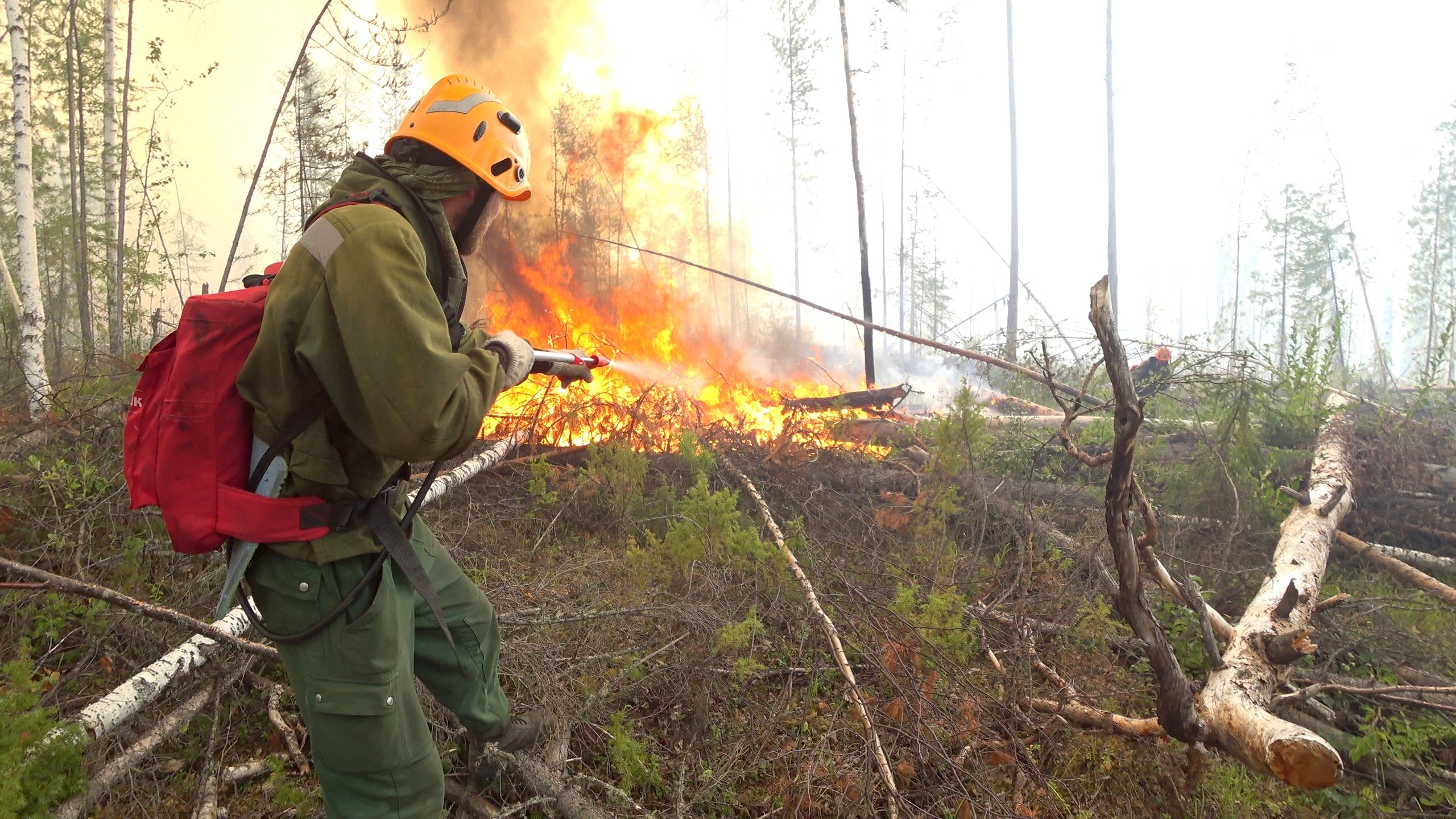Arctic wildfires pose new threat to planet, report finds
‘Zombie fires’ in far north are having a harmful effect on global climate

Arctic wildfires are not only bigger than ever before; they are also igniting more often and burning in an entirely different way, according to a new report.
Siberia’s fire season started two months early this year. Deep inside the Suzunsky pine forest, in the Novosibirsk region, volunteer firefighters are struggling to extinguish blazes that began from dry peat smouldering underground.
These so-called “zombie fires”, which can survive autumn rain and freezing winters, have been identified as one of the features now shaping the Arctic, with potential consequences for the regional landscape and the global climate.
A team tracking fire activity in the far north has observed that fire from previous summers is being kept alive during colder months by carbon-rich vegetation below the surface, rekindling as soon as the weather warms in the spring.
The resulting rise in temperatures is developing a vicious cycle in which plant types that are not usually fuels are starting to catch fire. So far, some 19 million hectares, an area larger than Greece, have burned in Russia in 2020.
“It’s not just the amount of burned area that is alarming,” said Dr Merritt Turetsky, a fire and permafrost ecologist and co-author of the study, however. “There are other trends we noticed in the satellite data that tell us how the Arctic fire regime is changing and what this spells for our climate future.
“We know little about the consequences of holdover fires in the Arctic, except they represent momentum in the climate system and can mean that severe fires in one year set the stage for more burning the next summer,” she added.
As a result, said the lead author of the report, Dr Jessica McCarty, a geographer and fire scientist at Miami University, “Arctic fires are burning earlier and further north, in landscapes previously thought to be fire resistant.”
Current climate models, which already forecast that the world has less than a decade to act on global warming, do not account for the rapid melting of these ice caps further north, releasing damaging greenhouse gases.
The management of the changing Arctic fire season requires an international effort, the report concludes, noting that Western scientists cannot find a solution without working alongside Indigenous knowledge holders.


Join our commenting forum
Join thought-provoking conversations, follow other Independent readers and see their replies
Comments